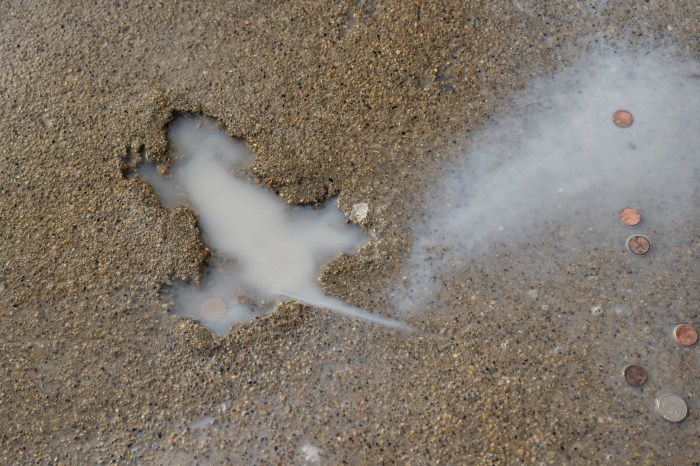CALGARY – For Canadians paying big bucks to fill their gas tanks, it might seem unfair that one of the country’s biggest energy companies racked up more than $1 billion in quarterly profit, an 86 per cent increase over last year.
While big oil producers are attractive targets on which to pin the blame for soaring pump prices, the CEO of Petro-Canada (TSX:PCA) said it’s a lot more complicated than that.
“These prices at the gasoline pump are driven primarily by the worldwide price of crude oil, which as a producer we are essentially price-takers in that marketplace” rolling with whatever happens to be the going amount, Ron Brenneman told reporters in Calgary Tuesday.
On Tuesday European oil giants Royal Dutch Shell PLC and BP PLC also reported humongous profits. Shell made 25 per cent more than it did last year with a record US$9.08-billion in earnings. BP brought in US$7.6 billion, a 44 per cent increase over 2007.
The huge increase in energy-industry profits has been driven largely by the meteoric rise in the price of crude oil, the main commodity these companies produce.
Crude oil flirted with the record-breaking US$120 a barrel mark on commodity markets Monday, but has since retreated to around US$115 – still nearly double what it was a year ago.
Increasing demand from China and other growing economies, geopolitical jitters, production snafus and market speculation have all been contributing to the soaring cost of crude.
The high prices have been a boon for Petro-Canada and its peers in what people in the industry call the “upstream” business – the segment that actually draws the oil out of the ground.
But on the “downstream” side – refining and selling petroleum products – profits were not so hot, Brenneman said.
“If you look at the distribution of our profits, the majority of it comes from the upstream part of our business, where crude oil prices basically dictate the revenue and ultimately the bottom line,” he said.
“We actually had negative refinery margins for a period of time in the first quarter, so that’s how volatile these margins can become. In other words we were losing money on every barrel that we were refining into gasoline,” he said.
“It’s a commodity market and sometimes commodity markets respond to supply and demand in a way that isn’t necessarily logical.”
There is not a lot that oil companies can do to reduce gas prices, since it costs a lot of money to produce it, said Chris Feltin, a stock analyst with Tristone Capital in Calgary.
“They’re not going to produce it for free or at a loss, so as your input costs increase the cost for the finished product also must increase,” he said in an interview
“The only thing that’s going to change that is if demand falls. That’s where things like hybrid vehicles and reduced dependency on oil could result in potential reduction in gasoline prices, but that’s a much longer-term effect.”
Lanny Pendill, an analyst with Edward Jones, said about two thirds of the cost of gasoline just comes purely from the price of crude oil.
“A big chunk of the remaining portion of the cost of gasoline is taxation. Of course they have no control over what the government wants to tax you for the fuel,” he said in an interview.
“I can see where people would want to point fingers at large oil companies because of the profits they’re claiming, but at the same time these people were pointing fingers at them back in 1998, 1999 when oil prices were down at $10 a barrel and a lot of these companies were having severe financial issues,” Pendill said.
“It is a cycle. We’re probably closer to the top of the cycle now. Times are good for these companies. But they are price-takers. They are not price-setters.”
To most Canadians, $1 billion in profits may seem like a staggering figure, but the analysts say Petro-Canada will use that money for extremely expensive megaprojects, like the $15-billion Fort Hills oilsands development in Northern Alberta, a $2.2-billion refinery expansion in Edmonton and a $1-billion coker in Montreal.
“It’s not like this money is just sitting there without being put to good use,” Tristone’s Feltin said.
“What happens when oil prices are high, is the operators can afford to look in some of the higher cost, higher risk operating areas globally,” he said, citing Libya and Trinidad and Tobago as examples.
But none of these explanations satisfy Toronto-area Liberal MP Dan McTeague, a gas-price watcher who has long accused the oil industry of gouging gasoline consumer.
“We are fast approaching a breaking point in Canada whereby prices are becoming unaffordable for most Canadians and yet we have an abundance of product,” he said.


















